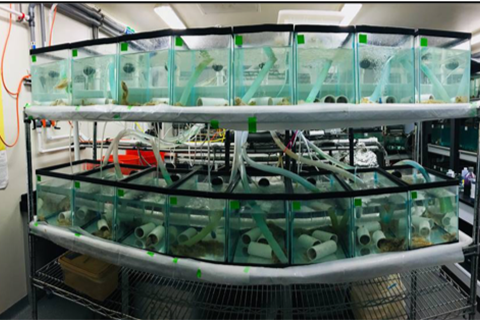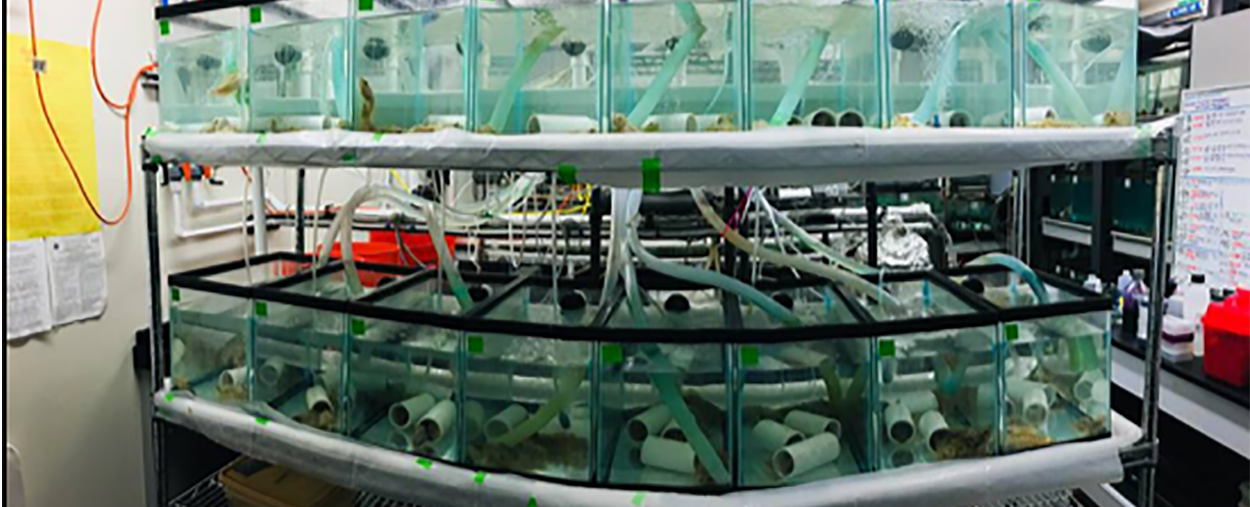1. Oil Toxicology
The ability of organisms to survive natural and anthropogenic stressors depends on the health of the glucocorticoid stress response. Organisms such as bottlenose dolphins and fish that are exposed to the polycyclic aromatic hydrocarbons (PAHs) associated with the 2010 Deepwater Horizon oil spill exhibit impaired cortisol release, which is the main stress hormone, and thus cannot respond appropriately to stressors. Our lab is working on determining where the impairment occurs within the hypothalamic-pituitary-interrenal (HPI) axis and on assessing the potential for recovery. We are exposing toadfish to low, environmentally-relevant PAH concentrations for various lengths of time (up to one month) of oil exposure and measuring various endpoints, such as hormone concentrations and mRNA expression, within the HPI axis to pinpoint the effects of oil exposure.
2. Anthropogenic Sound Pollution
Toadfish are well known for their vocal communication. They rely on hearing for reproduction, social interactions, and predatory avoidance and thus could be greatly affected by anthropogenic sound pollution. Recently, the largest and longest music festival to date was held on Virginia Key, FL next to the University of Miami Experimental Hatchery (UMEH) and on a coastline adjacent to the natural marine environment. Because of concern about sound pollution, we conducted a study in collaboration with other RSMAS labs that monitored toadfish stress levels at UMEH before and during the music festival. We found that the increases in sound within the tanks during the festival resulted in increases in plasma cortisol, indicating a stress response in toadfish. We also deployed hydrophones and detected elevated sound levels in the nearby marine environment. These results highlight the importance of performing additional research in this field in order to inform local city officials about the impact of events like this.





